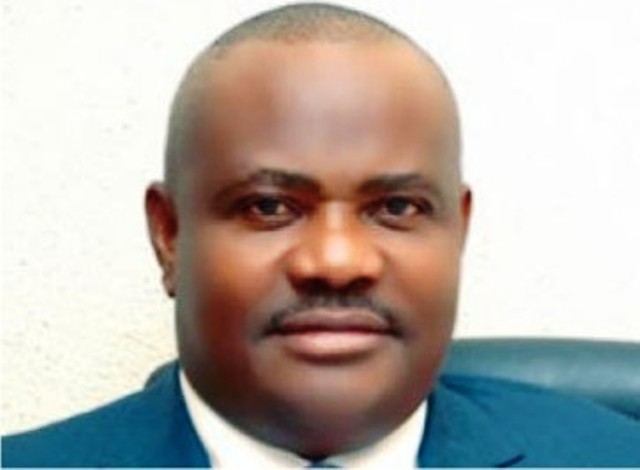Editorial
Well Done, Gov Wike

At times of economic recession like
Nigeria is in, it requires proper
planning, financial discipline, prudence, administrative creativity and indeed passion for service, for an elected public servant to make positive difference in the lives of the people.
For those who lack those qualities, the escape route is to blame failure on the economic crunch or even magnify the recession to be seen as a repression. They do nothing but complain and leave the electorate to their fate.
But Rivers State Governor Nyesom Ezebuwon Wike preferred to make a marked difference. Driven by the passion to give real meaning to the mandate he received from the Rivers electorate, the governor set to work from day one, in spite of the obvious handicaps.
Inheriting an empty treasury, with a challenge from his predecessors to work-out how to govern, arrears of workers salaries waiting to be paid, a network of death traps which were the roads and a thoroughly disillusioned citizenry, Governor Wike had the option to spend months vilifying his predecessor and blaming inaction on the magnitude of rot he met.
Instead, he went straight to work. First, he sourced funds to defray the three months arrears of unpaid civil servants’ salaries and five months owed retirees. Next, he confronted the death traps and within a year reconstructed nearly all roads in Port Harcourt and Obio/Akpor Local Government Areas of the State. Then, he moved to Ogoniland and expanded the Sakpenwa-Bori road among many others.
What of the Marine Jetty at Okrika and the reclamation of Kalabari Swamps? In Port Harcourt, a gigantic edifice now stands as the Nigerian Bar Association, Port Harcourt, Branch House while a Pleasure Park is in the offing.
Knowing that no meaningful development can take place amidst insecurity. Governor Wike donated more than 60 security patrol vans to the police and doubled same only recently. Also, he personally led the security community to raid criminal hideouts to root-out kidnappers, armed robbers, cultists and common criminals and that way improved security in the state.
With remarkable progress in that sector, investors’ confidence was immediately boosted and which translated into an upward rise in the Internally Generated Revenue (IGR) of the State. With such proceeds and others saved from the audit of ghost workers and through prudent management, Rivers remains one of very few states where, workers salaries are paid as and when due.
Infact, no sector of the economy that has not been touched by the Wike administration in Rivers. From Education, Health, Water Resources, Youth and Women Development, Social Services and indeed Agriculture Development. And in just more than a year, he has turned the state into a destination of choice for all manner of distinguished gatherings among them the All Nigerian Editors’ Conference (ANEC), the Nigerian Bar Association (NBA) Conference and several football events of the Nigerian National team, the Super Eagles.
This is why it came to very few as no surprise, when, in far away New York, United States of America (USA), Governor Wike was honoured yesterday with the prestigious Best Nigerian Governor Award for Grassroot Development, by the United Kingdom (UK) based Africa Leadership International Magazine.
The honour also attracted Congressional Commendation from the Georgia Legislative Black Caucus, held at the prestigious St. Regis Hotel, ZE 55th Street, New York, NY10022, yesterday morning. And like the congressional caucus, many others agree, the award was indeed well- earned.
The Tide commends Governor Wike for the landmark recognition and hopes that he considers it merely as a stepping stone for even greater accomplishments.
Well done, Wike.
Editorial
As NDG Ends Season 2

Editorial
Beginning A New Dawn At RSNC

Editorial
Sustaining OBALGA’s Ban On Street Trading

-
City Crime5 days ago
NCSU Hails Fubara Over 2025 New Telegraph Man Of The Year Award
-
Nation5 days ago
Nigeria Risks Drifting Without Strong Education Policies-Don
-
Nation5 days ago
Ex-UNIPORT SUG Leaders Organise Symposium In Honour Of VC
-
Nation5 days ago
Council Chairman Reconstitutes Revenue, Anti-Illegal Trading Committees To Boost IGR
-

 Education4 days ago
Education4 days agoElga boss tasks law students on academics strides
-

 News1 day ago
News1 day agoAmend Constitution To Accommodate State Police, Tinubu Tells Senators
-

 Politics1 day ago
Politics1 day agoSenate Urges Tinubu To Sack CAC Boss
-
Business1 day ago
President Tinubu Extends Raw Shea Nuts Export Ban To 2027

